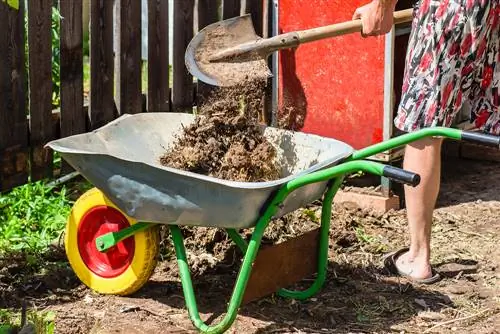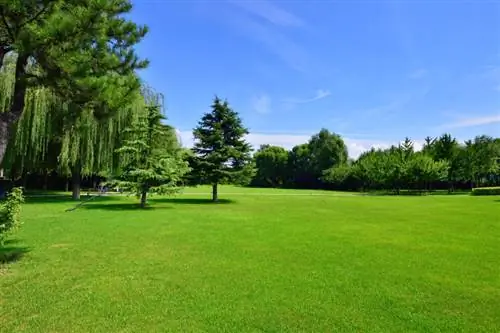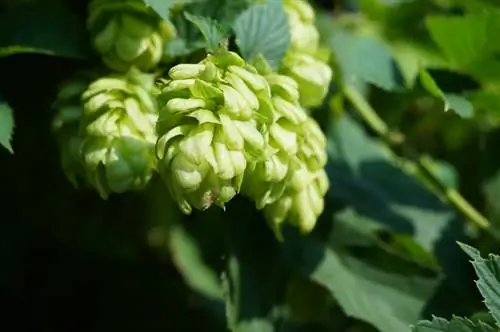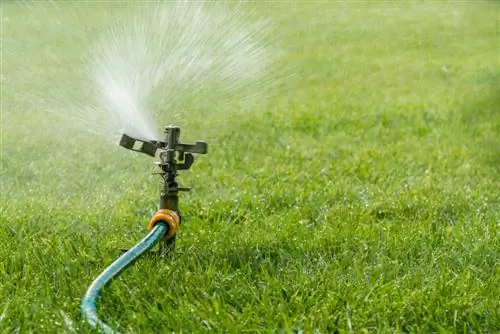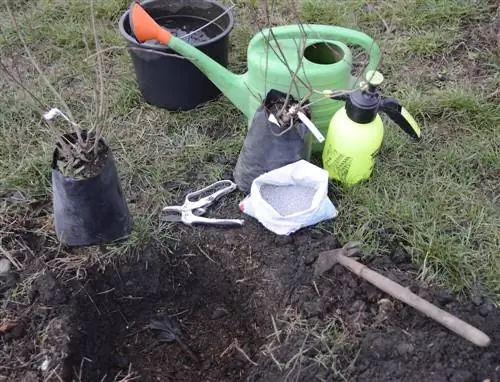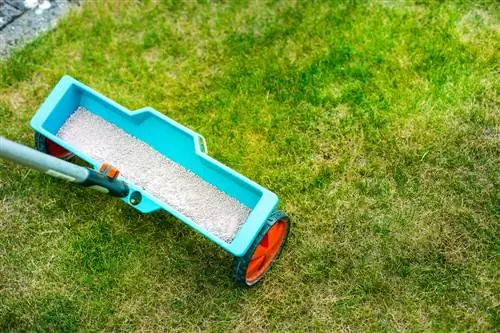- Author admin [email protected].
- Public 2023-12-16 16:46.
- Last modified 2025-01-23 11:21.
Compost is the ideal lawn fertilizer because it provides important nutrients. It not only ensures improved plant growth, but also supports the soil fauna. There are a few factors you should consider when fertilizing.
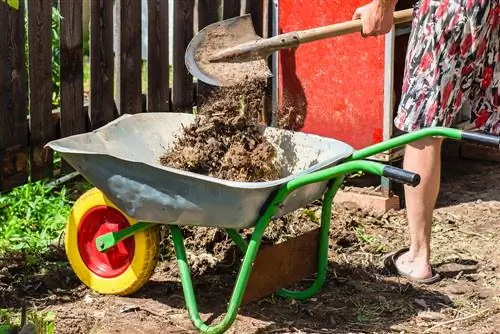
How do you properly fertilize the lawn with compost?
To fertilize the lawn with compost, sprinkle a thin layer of well-decomposed compost substrate onto the lawn and work it in carefully. Ideally, fertilize in spring, summer and autumn to optimally supply the lawn with nutrients.
Nutrients for grasses and soil organisms
Regular mowing of the lawn continually removes nutrients from the soil. The grasses have to continually draw nutrients from the substrate so that they can grow back. You need phosphorus, nitrogen, magnesium, potassium and calcium. Trace elements such as copper and manganese, as well as iron and boron are essential for he althy plant growth. A well-decomposed compost substrate can provide the nutrients. It provides an organic fertilizer while improving soil quality.
Many soil organisms feed on the plant components in compost. Their activity ensures that nutrients are made available to the plants. They loosen the soil and ensure optimal ventilation. Soil organisms have an influence on the water holding capacity of the substrate. Overall, they serve for lawn care and should be supported by lawn fertilization.
Time for fertilization
Fertilize the lawn in March or April to support the vitality of the grasses. Compost promotes the resilience of the lawn and ensures that it shines in a lush green color. The compost soil is ideal for intermediate fertilization during the summer months. If you fertilize the lawn with compost in October, you will provide a supply of potassium and phosphorus. During this time, the plants use the nutrients for root growth and the development of runners.
Tips for proper fertilization
Sprinkle the compost in a thin layer on the lawn. Work the substrate carefully into the grass mat so that the nutrients penetrate the soil better. Make sure the lawn is watered thoroughly. This ensures that the compost mixes with the soil. The soil organisms absorb the compost so that after two days you can no longer see anything.
This is what makes a good compost fertilizer:
- no rotten plant parts
- fine crumb structure
- sufficient moisture
Only use well-decomposed compost substrate for lawn fertilization. A filled ten liter bucket is enough for an area of ten square meters. You can reduce the amount if you fertilize your lawn several times a year.

